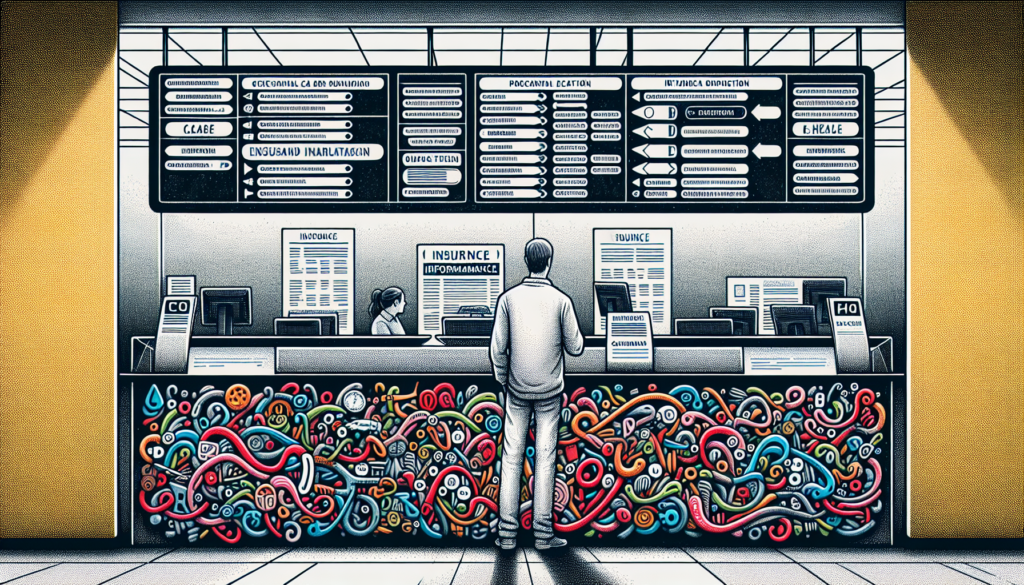Yes. Insurance for a single day is available.
Super Collision Damage Waiver: A Must-Read Guide
PUBLISHED ON Mar, 25 2024

Considering extra protection for your rental car? Super Collision Damage Waiver, or SCDW, can reduce your excess charges to nil, ensuring you’re not out of pocket in case of damage to the rental vehicle. Covering more than the standard waiver, including tires and windows, SCDW provides extensive protection that can be crucial for your travels. Our guide will walk you through the ins and outs of SCDW to help you decide if it’s the right choice for your next car rental.
Key Takeaways
- Super Collision Damage Waiver (SCDW) is an optional car rental insurance that minimizes renters’ financial liability for damages—including those to the tires, windshield, and undercarriage—often to zero, providing more comprehensive coverage than standard Collision Damage Waiver (CDW) and Loss Damage Waiver (LDW).
- SCDW can be particularly beneficial for international travelers, those driving in high-risk areas, or anyone with a low personal risk tolerance by offering peace of mind and financial protection against possible accidents or theft-related costs.
- Renters can obtain SCDW directly from car rental companies or through third-party providers, with potential cost savings and added convenience. Understanding the fine print, documenting pre-existing damage, and knowing one’s rights and responsibilities are essential for effectively navigating rental insurance options.
Understanding Super Collision Damage Waiver (SCDW)

Illustration of rental agreement fine print
While planning a trip, the last thing you want to think about is car rental insurance, but understanding what you’re signing up for can save you from unexpected costs. Super Collision Damage Waiver (SCDW) is an optional extra cover that can reduce your financial liability to zero in case of damage to the rental car. Unlike standard Collision Damage Waiver (CDW) that typically accompanies rental cars, SCDW provides additional protection, covering damages from various incidents including accidents, theft, or vandalism. In some cases, a car rental company waives the need for additional insurance by offering SCDW as part of their package.
SCDW is a premium option that offers more comprehensive coverage compared to standard CDW and Loss Damage Waiver (LDW) options. It often reduces or even eliminates the deductible and covers parts of the vehicle that are typically excluded. For instance, the excess amount with standard CDW, which is the maximum amount a renter is liable for in case of damage, can range from €500 to €4,500 depending on the vehicle’s value. With SCDW, you can potentially bring that amount down to zero, offering you a stress-free rental experience.
The Basics of SCDW
Super Collision Damage Waiver (SCDW) is designed to cover the excess or deductible payment if the rental vehicle is damaged, protecting renters from paying out of pocket for damages or theft. It offers a wider coverage compared to standard CDW by covering parts generally excluded by CDW, such as: undercarriage, roof, tires, windshield and windows.
The specifics of SCDW may vary depending on the rental company, so it is vital to read the insurance description provided by the rental agency before making a decision. SCDW can be purchased online or at the rental desk, offering flexibility and often impacting the financial holds required on your credit card during the rental period.
Advantages of SCDW
The all-inclusive nature of SCDW simplifies the rental process for the renter, eliminating worries about additional paperwork or hidden fees, and reduces the risk of unexpected financial burdens from accidental damage. Not only does it extend coverage to areas of the vehicle that are often excluded by standard CDW, including the tires, windshields, and undercarriage, but it also benefits renters financially by significantly reducing or even eliminating deductibles.
Moreover, SCDW offers additional value through emergency assistance such as a Roadside Safety Net. It may also prevent the need to claim against personal auto insurance, a common requirement with many credit card policies. SCDW, therefore, offers peace of mind, financial protection, and added value, making it a smart choice for many renters.
When to Consider SCDW for Your Car Rental

Illustration of a world map with international travel destinations
Understanding when to consider SCDW can help you make an informed decision that aligns with your travel needs. SCDW may be more beneficial in regions with high rates of accidents or theft, as its comprehensive coverage offers greater protection. If you’re traveling to a country with challenging driving conditions, such as narrow roads or left-hand traffic, SCDW can provide additional protection.
Renting luxury or high-performance vehicles is another scenario where SCDW can be more cost-effective due to the higher costs associated with repairing such vehicles. If you’re renting a car for an extended period, SCDW brings peace of mind over long-term rentals. Lastly, your personal risk tolerance plays a significant role in choosing SCDW. If you prefer to mitigate the financial risk of paying for expensive damages out-of-pocket, SCDW is a prudent choice.
International Travel
When traveling overseas, the unfamiliarity with local driving conditions and laws can heighten the risk of accidents. This makes SCDW a valuable investment for international travelers. By opting for SCDW, international renters can significantly reduce or even eliminate the high deductibles typically associated with vehicle damage in rental agreements.
For first-time visitors to countries like Ireland, where driving conditions and laws may be unfamiliar and challenging, purchasing SCDW is particularly recommended to mitigate risks. Thus, SCDW becomes a safety net, providing peace of mind and financial protection for international travelers.
High-Risk Destinations
Navigating through high-risk destinations, where the likelihood of theft, vandalism, or challenging driving conditions is higher, can be nerve-racking. SCDW offers peace of mind and financial protection in such scenarios. Higher rates of accidents and theft in the renter’s location can influence the decision to choose SCDW, as more comprehensive coverage becomes desirable.
The prevalence of car theft can be a substantial concern in high-risk areas, and certain car models might be more prone to theft. If you’re renting one of these vehicles, or a premium or luxury vehicle where repair costs can be significantly higher, considering SCDW for added security is a wise choice.
Personal Risk Tolerance
Your personal risk tolerance plays a significant role in deciding whether to opt for SCDW. Factors such as your driving record, the type of car rented, and your preferred level of coverage all come into play. The deductible level selected for rental car insurance is a direct indicator of your personal risk tolerance. Choosing a higher deductible might lower premiums but necessitates having that sum available in case of an accident.
With SCDW, you have the option to:
- Reduce your excess financial liability to zero for most vehicles
- This offers peace of mind and minimizes potential financial loss from accidents or theft
- So, if you’re someone who prefers to play it safe, SCDW can be a valuable investment.
Comparing SCDW with Other Car Rental Insurance Options
When considering insurance options for your rental car, understanding how SCDW stacks up against other options can help you make the best choice. Collision Damage Waivers (CDW) and Loss Damage Waivers (LDW) are the two primary types of rental car insurance policies that travelers should understand. SCDW can provide essential coverage in high-risk areas for vehicle theft by including theft protection insurance with zero excess, eliminating out-of-pocket expenses after theft incidents.
In addition to SCDW, comprehensive theft protection insurance is advisable for travelers to high-risk areas. It works in tandem with SCDW to cover losses from vehicle theft completely. This comprehensive comparison allows you to evaluate your options and choose the one that best suits your needs.
CDW vs. SCDW
A standard Collision Damage Waiver (CDW) often excludes coverage for parts like: windscreens, tires, undercarriage, roof, interior, windows and side mirrors. On the other hand, SCDW typically provides coverage for these parts, offering a larger safety net.
While SCDW generally costs more than standard CDW, with an additional cost of approximately $10 to $30 per day, it offers a higher level of coverage and financial protection. Unlike CDW, which reduces the renter’s financial responsibility to a set excess amount, SCDW often reduces this excess further and can even reduce it to zero.
LDW vs. SCDW
Loss Damage Waiver (LDW) includes coverage for damages to the rental vehicle in most situations and theft. However, it may not cover all types of damage, such as tires and interior damage, and the coverage can be voided if the rental agreement’s terms are violated.
Comparatively, SCDW is an upgraded form of CDW that reduces financial liability even further but does not inherently include theft protection. It may offer coverage for personal items and liability insurance, an area where LDW may lack depending on the rental company’s policy.
Credit Card Coverage vs. SCDW
Many credit card companies offer rental car insurance as a perk, but these policies often come with restrictions and requirements that can complicate the claims process. For instance, to benefit from credit card coverage, you’re required to charge the entire rental cost to the card and must decline the rental company’s insurance, which is not necessary with a direct SCDW purchase.
Credit card insurance policies may not cover certain types of vehicles such as luxury cars or SUVs and have shorter coverage periods, typically around 15 to 30 days, which may not suffice for longer rentals that SCDW could cover. These factors make SCDW an attractive option for comprehensive and hassle-free coverage.
Third-Party Providers
Third-party insurance providers like CarInsuRent offer car hire excess insurance that covers the rental car’s insurance excess, helping to reduce the renter’s financial liability in the event of vehicle damage, as well as additional coverages sometimes excluded by rental car companies. By opting for excess insurance, you can further safeguard yourself against unforeseen expenses during your rental car experience.
CarInsuRent provide flexibility for renters, offering the choice between single-use policies for specific rental periods or annual coverage suitable for multiple rentals.
Illustration of making an informed decision at the rental counter
How does CarInsuRent Differ from SCDW?
- CarInsuRent car hire excess insurance starts from as low as $6.49 per day* to $94.90 for an annual policy. SCDW can be purchased separately for US$ 15.00 – U$ 30.00 per day.
- CarInsuRent car hire excess waiver insurance covers damage to the rental car’s windscreen, auto glass, tires, undercarriage or roof and is included at the price of the policy.
- CarInsuRent covers baggage and personal belongings – up to US$ 1,500 included at the price.
- CarInsuRent covers the replacement of a lost or stolen Rental Car key.
- CarInsuRent covers exorbitant rental company fees added to your repair bill – including fees for loss of use, processing, relocation and towing.
- CarInsuRent covers single-vehicle accidents – claim even if the damage or theft to your car was not your fault.
- CarInsuRent offers annual worldwide car hire excess Insurance for hiring cars around the world for up to 45 days.
*Prices based on 10 days coverage
See How Much You Can Save on Your SCDW
Get StartedTips for Navigating Car Rental Insurance and SCDW
Navigating car rental insurance and SCDW can be complex, but a few tips can make the process smoother. Always check the condition of the rental vehicle before leaving the car rental agency to avoid misunderstandings related to vehicle damage at the end of the rental period.
Reading the Fine Print
Take the time to understand the fine print of your insurance policy. SCDW may not cover damage to the car’s undercarriage, tires, or water-related damages, so it’s crucial to review policy exclusions carefully. Understand the rental car policy’s terms and conditions to avoid unexpected expenses, such as fees or additional charges.
It’s necessary to carefully review the rental agreement to fully comprehend the CDW and LDW terms, including the exclusions and degree of coverage offered.
Documenting Pre-Existing Damage

Pre-rental inspection
Before you drive off the rental lot, conduct a thorough walk-around of the car in daylight for better visibility of any damage, and take note of scratches, dents, or other issues. Use your smartphone to take videos and photos from multiple angles, ensuring that the date and time stamps are visible to verify when the documentation took place. Point out any damage to the rental car agent and make sure it is noted on the rental agreement before leaving the lot.
Check the interior of the vehicle for any damage or stains, and document them as well, as these can often be overlooked.
Knowing Your Rights and Responsibilities
As a renter, you have rights and responsibilities. Here are some key points to keep in mind:
- You have the right to ask questions about the rental contract and are entitled to clear answers from the rental agency.
- You should receive a vehicle that is safe and roadworthy.
- You should not be held financially liable for mechanical faults that were not caused by misuse.
However, you also have responsibilities as a renter of car rentals. It is your responsibility to:
- Follow the terms of the rental agreement
- Comply with traffic laws
- Upon returning the rental vehicle, conduct thorough checks in the presence of staff when possible, or take new photos to document the car’s condition
- If you’re charged for damage, you have the right to a breakdown of charges and may challenge any amount you feel is excessive.
Summary
Understanding and navigating car rental insurance can be daunting, but with the right information, it doesn’t have to be. Super Collision Damage Waiver (SCDW) offers a comprehensive safety net, reducing your financial liability and offering peace of mind. Whether you’re traveling overseas, navigating high-risk destinations, or simply want to protect yourself from unexpected costs, SCDW is a valuable investment. By understanding your options, asking the right questions, and knowing your rights and responsibilities, you can confidently navigate your next car rental experience.
It is important to research and understand the coverage options and costs to make an informed decision that best fits your needs. CarInsuRent car hire excess insurance starts from as low as $6.49 per day* to $94.90 for an annual car hire excess insurance policy. Our policies covers the excess on damage and theft up to €2,500 and provide full protection that Includes single vehicle damage, roof and undercarriage damage, auto glass and widescreen damage, towing expenses, misfuelling, loss of car key and tire damage. We cover multiple drivers between the ages of 21 and 84 years.
Frequently Asked Questions
Is super collision damage waiver worth it?
Yes, the super collision damage waiver can be worth it because it lowers the excess of your rental car and covers damage, potentially minimizing what you have to pay in case of an accident. It’s particularly valuable if you don’t have sufficient coverage through your own car insurance or credit card.
What does super collision damage waiver mean?
Super Collision Damage Waiver (SCDW) provides greater insurance coverage than the standard Collision Damage Waiver, giving you peace of mind and lowering your financial responsibility for rental vehicle repairs in case of an accident. Different car rental companies may offer varying coverage amounts.
When should I consider SCDW for my car rental?
You should consider SCDW for your car rental when you are an international traveler, renting a luxury car, in high-risk destinations, planning an extended rental, or have a low personal risk tolerance. These factors indicate a potential benefit from SCDW coverage.
How can I purchase SCDW?
You can purchase SCDW directly from the car rental company or from third-party insurance providers.
Travel Tips and Guides

CDW Insurance Explained: What is CDW in Car Rental and Do You Need A Collision Damage Waiver?
Mark Vallet
Frequently Asked Questions (FAQ)
No. We provide a single journey plan. You are covered from the time you pick up the rental car up to the time you return it or on the last date written on your Certificate of Insurance, whichever comes first.
No. You should purchase a policy before starting your travel.
Find the answers you’re looking for to the most frequently asked car hire insurance questions as well as other questions relating to our products and services.

